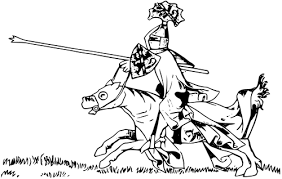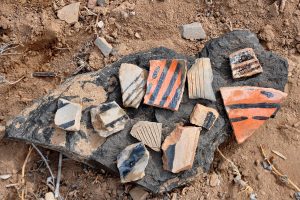 This one was nominated by reader Leslie Rose III. It’s time, as the fiction of Philip K. Dick really describes the times we endure.
This one was nominated by reader Leslie Rose III. It’s time, as the fiction of Philip K. Dick really describes the times we endure.
I have featured a post about J.R.R. Tolkien’s influence and the adjective it generated, as well as other others who have earned that status. Dick merits it; I simply wish “Dickensian” were not already taken, as “Phildickian” does not roll off the tongue. Nor does it seem common enough to appear in dictionaries yet.
That said, let’s look at a blog post with Cory Doctorow’s fine reasoning for why our world is “best viewed through the lens of Philip K Dick (whose books repeatedly depicted a world of constructed realities, whose true nature was obscured by totalitarians, conspiracies, and broken computers) and not Orwell or Huxley, whose computers and systems worked altogether too well to be good parallels for today’s janky dystopia.”
Janky? That needs a post, too, but Doctorow’s reasoning seems spot-on perfect. Why, in the midst of a pandemic, do I get a little paper card from the CDC, something easily forged by paranoid and selfish anti-vaxxer types, proving that I have been inoculated and boosted? Why do that, when the government was perfectly capable of printing a DEBIT card, complete with chip and magnetic stripe, for a handout from a former President’s incompetent administration? Why do some patently insane conspiracy theories, left and right, persist?
Why?
Because we live in a janky dystopia where things are not as them seem. Not the other three types of dystopias outlined in this brilliant piece at Medium. Things break, or we get lied to. Bait-and-switch games abound, even from those we grant great power.
Dick’s fiction hit its apex in the equally janky and run-down 1970s, but today things rhyme with that decade, though we have more dangerous cartoon-figures with totalitarian intent, who may or may not be fully human, waiting in the wings.
Dick was not always the best stylist, since he cranked out prose by the boatload under the influence of paranoia and drug abuse, but his best work should endure. Riley Scott did a good job with the Director’s Cut of the original Blade Runner of capturing Dick’s world. That should help the fiction stay in print.
And perhaps we’ll get a better adjective, if not a less Phildickian world. The irony of this post running on the day we commemorate a great man, Martin Luther King Jr., could not be more revealing of the gap between where we should be and where, sadly, we are.
Be sure to send me words and metaphors of use in academic settings, or merely intriguing, to me by leaving a comment below or by e-mail at jessid-at-richmond-dot-edu.
See all of our Metaphors of the Month here and Words of the Week here.
Cover image from Philip K. Dick’s novel The Penultimate Truth.
 Here’s a new word, first noted in 1989 by The OED’s entry. It’s an apt term for human-generated climate change! First we had an A-Bomb, then an H-Bomb to trouble our sleep.
Here’s a new word, first noted in 1989 by The OED’s entry. It’s an apt term for human-generated climate change! First we had an A-Bomb, then an H-Bomb to trouble our sleep.

